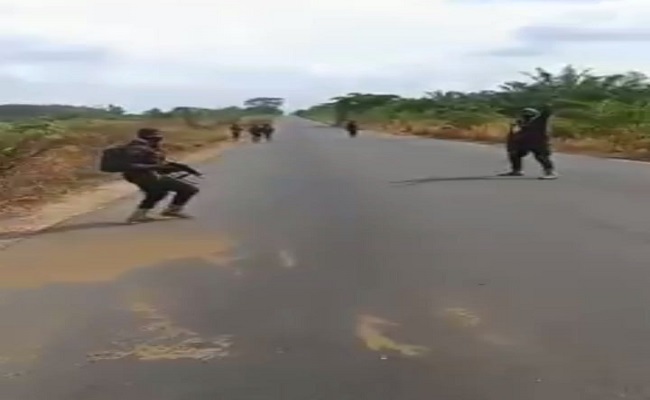UN says situation in Southern Cameroons deteriorating
The situation in the North-West and South-West (NWSW) regions remained concerning, with continued hostilities, targeted attacks, destruction of property, and continued use of improvised explosive devices (IEDs). The population continues to bear the brunt of violent incidents, either targeted directly or being affected by the consequences of IEDs or crossfire. Partners reported multiple displacements across the NWSW caused by violence. Over 37,800 persons were reportedly displaced to nearby bushes and villages, with Meme in the SW and Bui in the NW being the most affected divisions. Most of the displacements are pendular and temporary as displaced persons return to their homes once the security situation allows.
There have been positive developments in the fight against the cholera epidemic in the SW, but the epidemic is not yet tackled. The SW regional delegation of public health reported a drop in the number of positive cases in April compared to previous months thanks to joint efforts of the regional health authorities, and Health/WASH Clusters’ partners. Some areas in Ndian division, affected by the cholera epidemic, can only be accessed by boat, further complicating the cholera response.
Humanitarian access remains possible but challenging, requiring significant efforts for organizations to be able to conduct all necessary access negotiations and ensure safe humanitarian operations.
Activities of a humanitarian NGO, which was not authorized by local authorities to operate in Ekondo-Titi subdivision (Ndian division of the SW), remained suspended in the division by the NGO, impacting the health assistance. This comes in addition to the continued suspension of operations by another NGO in the SW since March 2022, in response to the continued detention of two of its staff.
Four staff from a local NGO were abducted by unidentified armed elements when returning from a distribution activity in Widikum, Momo division of the NW, together with their vehicle. The team was later released but the car was not returned.
In two separate incidents, food aid trucks were diverted in two localities of the NW region but returned after negotiations with the assailants.
Attacks against school staff and educational premises continued. In four different incidents, thirteen students and three teachers were abducted, only to be released after payment of ransom. Two schools in Buea suffered arson attacks, on 4 and 6 April, by unknown armed men.
Fourteen incidents with IEDs were reported in April, deployed by non-State armed groups (NSAGs) against State security forces. Eight IEDs were detonated in the NW, five in the SW, and one IED in the SW was deactivated by security forces.
The United Nations Humanitarian Air Service (UNHAS) services remain suspended across the NWSW.
About 2 million people affected by the NWSW crisis need humanitarian assistance and 1.4 million of the most vulnerable are targeted by humanitarian partners for assistance in 2022. Over $135.9 million are requested to respond to the needs of the most vulnerable. Limited funding has been a major constraint in the response to humanitarian needs with only 54 per cent of the required funding for the HRP 2021 received.
Culled from UN Office for the Coordination of Humanitarian Affairs





